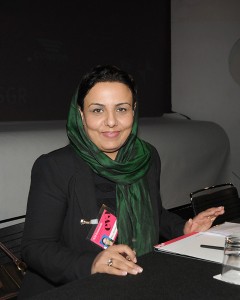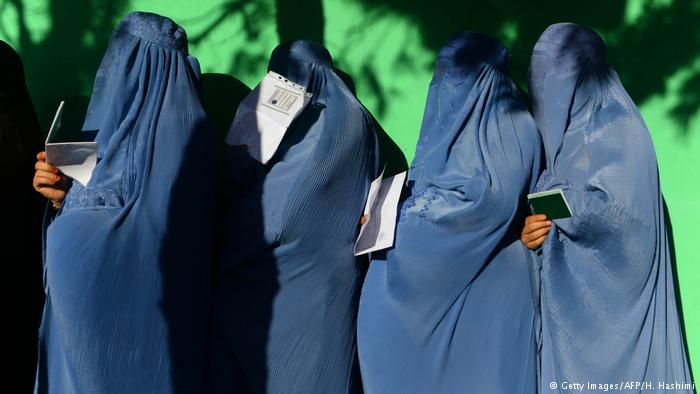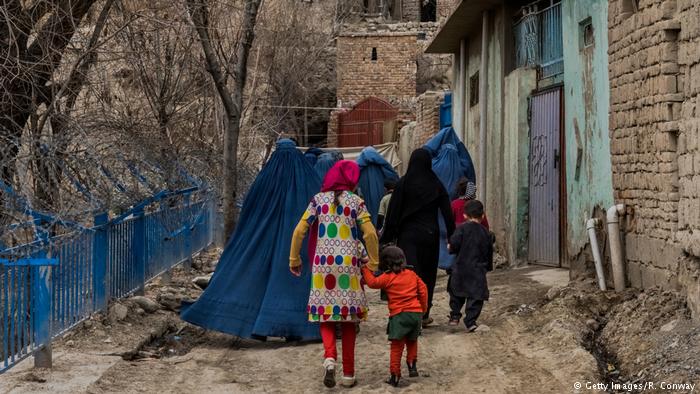‘Women are a political issue’
Mary Akrami is the Executive Director of Afghan Women Skills Development Organization, which was founded in Kabul in 1999 for protecting women’s rights in Afghanistan. Women Talk Online blogger Beenish Javed met Akrami and asked her about the status of women in Afghanistan.
Beenish Javed: Has the status of Afghan women improved in the last ten years?
Mary Akrami: Yes, if we compare the situation with the Taliban era, we see a lot of improvement now. We have 25 percent women in parliament, in the cabinet and large number of women are now going to school, many have become doctors and a large number are working in organizations that work for women’s rights. We even have female police officers, but in some parts of Afghanistan, there are security problems and women suffer a lot. They don’t have access to resources.
What about the current laws in Afghanistan? Are they discriminatory or friendly towards women?
If we compare the laws with other countries then I can say that we have very good laws, but it’s still a long way for women. We have problems in implementing of most laws. For instance, I think in Kabul, laws are being implemented. We have a shelter for women in Kabul but Afghanistan is not only Kabul. We have close contact with the judiciary but difficulties and challenges are there. Justice should be available to all women in the country.
What kind of facilities should be available for women?
We have some provinces where there are shelters but it is only for those women who come through government contacts or who have the support of the police, but the problem is that a lot of women who cannot pursue their cases in their own provinces come to Kabul. They contact the ministry of women’s affairs to get protection in the women shelters.
We are providing training and now even the police is supporting women and learning how to deal with victims of violence. However, police support is not available for all women because most women don’t have the courage go to them. This is because women’s issues are usually a matter of family honour and it’s not easy for women to speak out.
Are there enough rehabilitation centers for victims of sexual harassment and rape?
Unfortunately no. We don’t have specific shelters for rape victims, we only have shelters for victims of violence. We try to convince the international community but it also depends on the interest of international community about where they want to help. The government usually doesn’t show much interest in women issues. It is only organizations working for women’s rights that are trying to initiate some change.
We are facing a lot of challenges especially this year regarding finances. None of these centers get support from the government and most of the help is from the international community. But unfortunately, women issues in Afghanistan have become a political issue. There is a lot of money coming in Afghanistan but it’s not coming for the welfare of women. It is not easy to get funding especially for women shelters. I was running two shelters for women but this year one international donor just stopped the funding and we had to close one shelter. When I asked the reason, the donor simply said that we don’t have enough money to sustain this shelter anymore.
Tell us about the “Elimination of Violence against Women Law.” Has it been effective in protecting women?
Because of this law, violence against women in Afghanistan has been criminalized. Most women shelters in the country are run because of this law. Especially during the last three to four years, most rape cases were registered because of this law. The judiciary, police, and courts are also supporting women according to this law. More than 2600 perpetrators who caused violence against women are now in jail. But unfortunately some parliamentarians are trying to suspend this law; they say that this law is against Sharia. This law was passed in 2009 by Presidential decree all over Afghanistan. Since then, we are trying to advocate this law in different parts of Afghanistan but now some parliamentarians say that the law should be passed by parliament because the presidential decree is not enough.
Are women afraid of what will happen to them in 2014 when all the foreign troops move out?
We don’t wish that 2014 comes. It is a real concern for all Afghan women. There is still a long way to go but we feel that we are going backward. I don’t expect that Taliban will take over but everything is possible in Afghanistan. Right now our leaders are trying to make Taliban happy and this increases our fears.
Interview: Beenish Javed
Editor: Manasi Gopalakrishnan
Beenish Javed is a reporter working for ARY News, Islamabad. She has been a fellow of the Friedrich Ebert foundation (FES). You can follow Beenish on Twitter @Beenishjaved.







